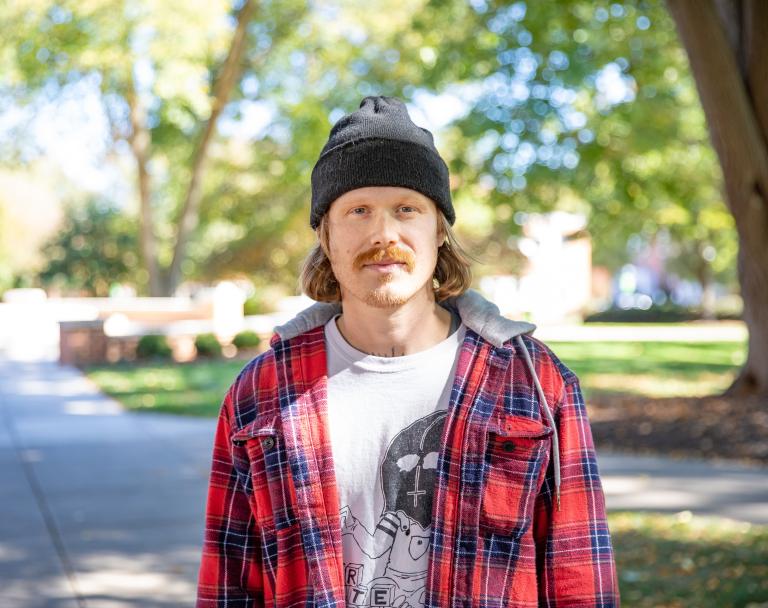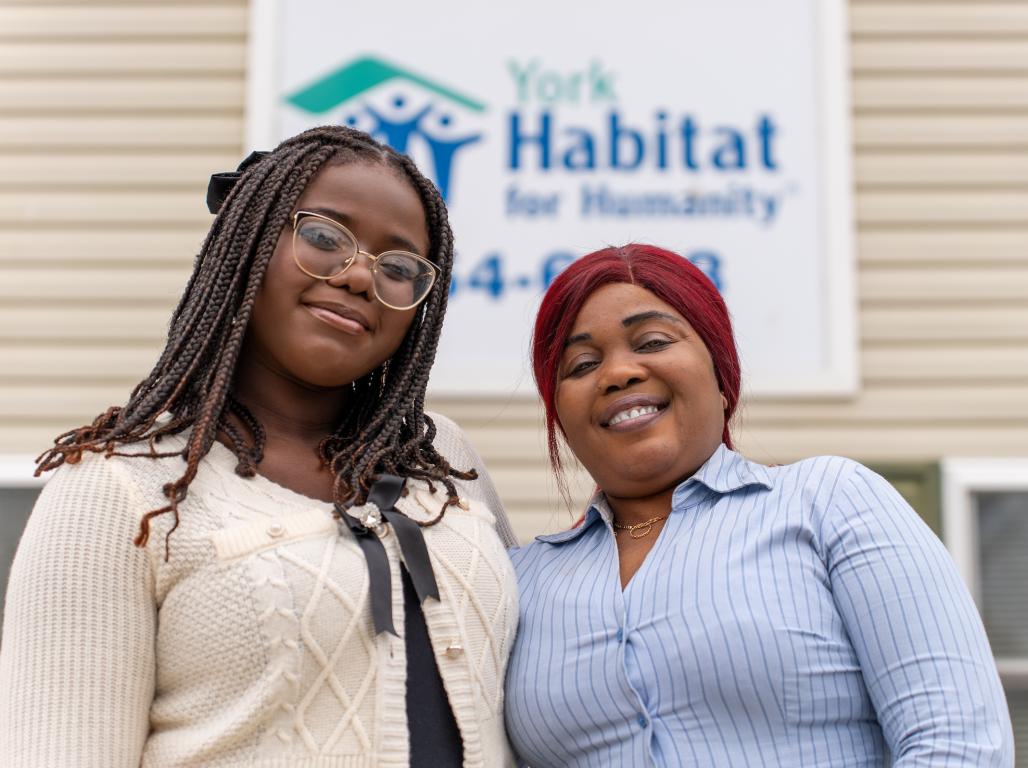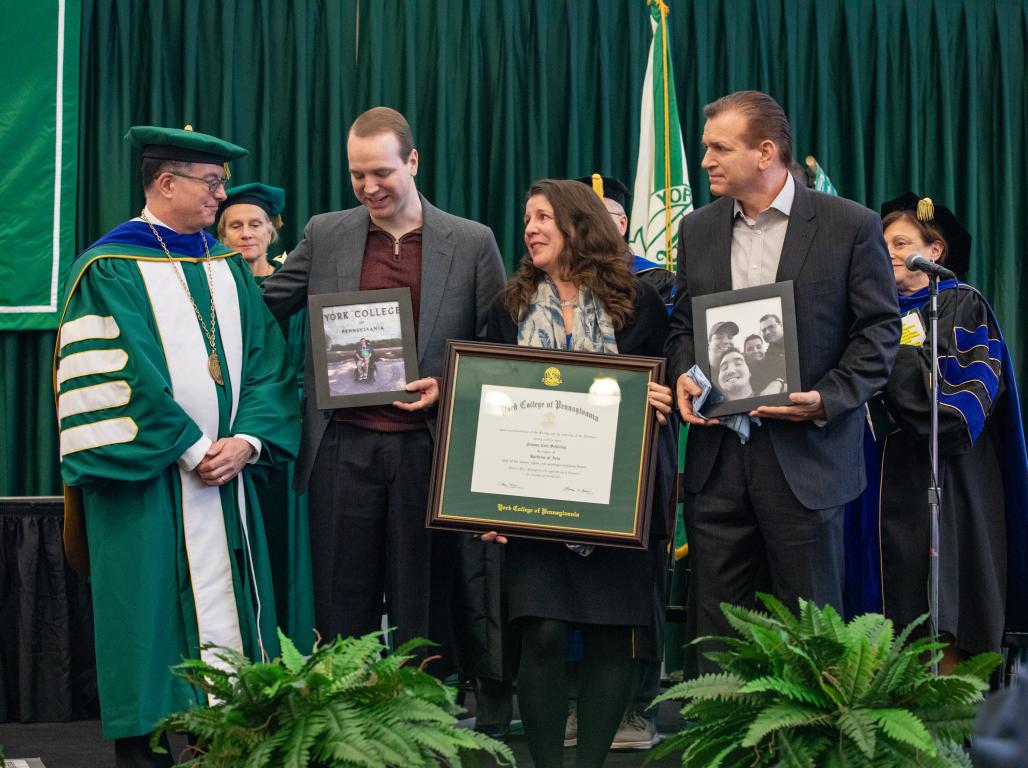The Roundabout Way: A Nontraditional Student Blog

I hated high school, and I couldn’t wait for it to be over.
I know I’m not alone in this sentiment. I also suspect that I’m not alone when I say that the old adage – often expressed in a wistful-yet-saccharine way by well-meaning older folks – that I’d look back on my high school years as “the best time of my life” seemed not only ridiculous but completely and utterly terrifying.
But let me take a step back because “hate” probably isn't the right word to describe how I felt about school. Hatred, it seems to me, implies a level of intimacy and familiarity (at least, it should), and, to be completely honest, I didn't really engage enough with school or schoolwork to feel like I have a right to claim that I hated it. The kid who has sacrificed a social life for four of their most formative years, choosing instead to study and memorize and make flashcards and, you know, do homework; that person can say, if it's true, that they hated school. No, I think what I felt was indifference.
I felt it even though I considered myself someone who valued education. My mother was a teacher, a good one, who could make digging for worms in the backyard somehow educational. I read for fun. Some of my fondest and most concrete memories are of going to Northeastern Middle School (Mt. Wolf, PA) for a few hours on a Saturday or Sunday morning before the school year began (my mother taught seventh-grade life science at Northeastern Middle School for 32 years) to help her set up her classroom. I’d rummage through her storeroom and emerge with dozens of sealed mason jars filled with ghostly animal specimens floating in cloudy baths of alcohol and formaldehyde. I liked arranging them in her glass display case and polishing the chrome faucets and valves that stuck out of the jet-black lab tables. It was usually while doing these things every year that I’d make a solemn pledge to myself to try hard in school. I don’t know why. Perhaps it was the formaldehyde.
But inevitably, that pledge wouldn’t stick. I slacked off voraciously all four years of high school. And when the final bell rang on the very last day, I was already a mile and a half down the road, headed for Philadelphia and the start of my life.
It was surprising then, both to me and to those who really knew me, to find myself enrolled at Temple University the next fall, another wide-eyed, idealistic member of the Class of 2011. I’d enrolled as a History major with absolutely no idea what I wanted to do with my life (in fact, I scarcely remember applying). I liked history, though—in high school, it was the subject least likely to lull me to sleep—so I signed up for classes I thought sounded interesting, like History of the American West and Southeast Asian History. I filled up the rest of my schedule with first-year seminars, required math, and, because we had to take a language, Arabic.
I made another pledge to myself, too. “I’m going to do it for real this time,” I remember thinking over and over in the weeks before school began, as if I’d adopted it as my personal mantra. I think I even wrote something similar on the inside cover of one of my journals, scribbling my signature beneath it in black ink in an attempt to somehow make it official, to solidify it somewhere in my hyperactive adolescent psyche.
It didn’t work, and my plan to develop rock-solid professional study habits on the fly proved misguided. Actually, looking back now, I’m embarrassed by how nauseatingly naive it was, at how earnestly I believed that, with a bit of effort, I could become the most studious son of a gun those old crabs at Temple University ever had the pleasure of teaching. I just didn’t have the skills, the habits, or the drive to make that happen. I struggled to keep up. My childhood insomnia returned, and I spent the nights alone, walking around North Philly, smoking cigarettes. I lost 15 pounds. By the time the final week of my first semester rolled around, I was failing two of my five classes and was ready to drop out.
So that’s what I did; I dropped out. I didn’t even do that properly, though. Despite the fact that I never showed up for classes, I was technically enrolled for the first four weeks of the following semester as I dragged my feet on submitting paperwork and getting signatures. By the time I left Temple University, my academic transcript showed that I’d failed multiple classes.
My parents were horrified, and I used every excuse I could come up with to justify my decision. “You told me to travel while I was young!” or “I need to earn some money so I can afford to commit myself totally to studying! You don’t want me dependent on you for four more years, do you?” Anything to avoid divulging the actual truth, that in my half-baked quest to form good study habits, I’d picked up a decidedly different set of habits: an addiction to cocaine and heroin that would follow me in and out of jails and institutions for the remainder of my 20s, decimating along the way every relationship and friendship I entered into and indefinitely sidelining any plans I’d made to return to school.
What all this throat-clearing amounts to, really, is a fairly poor excuse for why it took me so long to get here. Granted, it didn’t take me as long as some people. I’m not the oldest student on campus, after all. But when I pass noticeably older people carrying backpacks in the hallways or I pull in next to them in the commuter parking lot, the story I construct of their past is always exponentially more virtuous and practical than my own. I imagine they put off going to college for 10 or 20, or even 30 years to learn a trade, travel the world, or start a family. I’m giving you this backstory because that is decidedly not what I did. I did spend my 20s working, mostly in restaurants, but a large portion of my time was spent loafing, getting high, hanging out at the bar, and not paying my bills. I made friends along the way, some that stuck around, others that didn’t. They were mostly people who had understandably allowed tragedy or addiction or the crushing weight of the mind-numbing daily rat race to leave them a little jaded—people who, despite having been born with above-average levels of intelligence through sheer dumb luck, were willing to just sit on the sidelines as the world passed them by. In other words, people like me.
I made friends in high school, and I’ve kept tabs on them over the years. They all graduated from their chosen schools as members of the Class of 2011. Some went on to graduate school. These very nice, adult people are out there (some on other continents) doing what seems from the outside to be important, meaningful things that require all the brain power they spent the first two-and-a-half decades of their lives consciously and painstakingly accruing. They are my contemporaries, and in some cases, they’re still my friends—but they stopped being my peers a long time ago. Somewhere between my third and fourth stint in rehab, maybe.
The community at York College (that is, all of you) are my peers now.
I’ve been given this space to write about my experiences as a nontraditional student, and I wanted to begin by being honest. I’m just as insecure and confused as I was at 19, still making it up as I go along. But I feel an immense sense of gratitude to be here, above ground, still kicking, still learning. Everything else, including college, is a giant, cosmic cherry on top.




